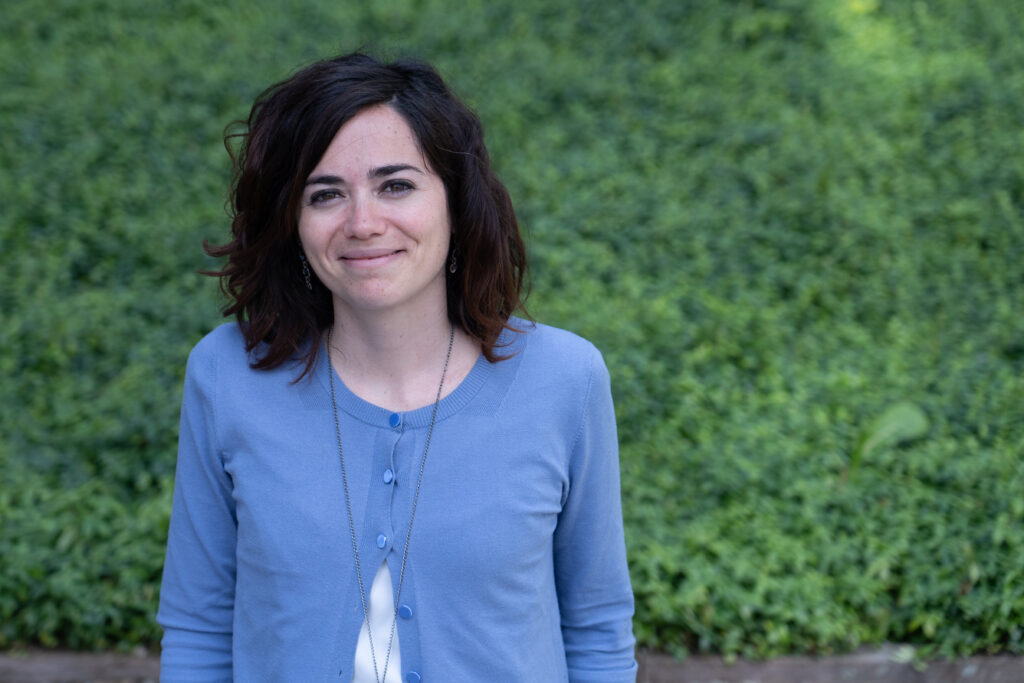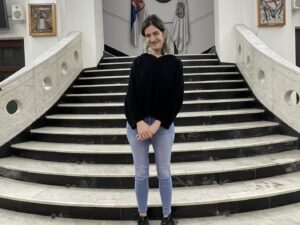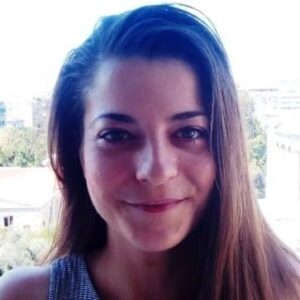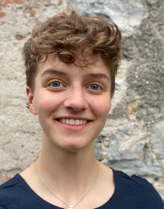Interview at the end of the EJWP Journey with Rosa Esposito, Isle Utilities, Italy
June 2021
EJWP is my first networking and training programme of its kind. When I read the outline for EJWP, I thought it was a good idea because it was a group of younger-generation water professionals learning and working in an EU context. As a result, we know more about the countries and organizations, and the young professionals working there. EJWP can be helpful as well for organizations that we come from, through sharing knowledge and better mechanisms for collaboration in the sector. In analysing our projects, and human capital, it’s clear that the water sector needs a continuous flow of new skills.
I studied Environmental Engineering at Federico II University in Naples, Italy. Since May 2018, I’ve been working for Isle Utilities as a Technology Consultant in the Italian office. Isle Utilities is a globally active innovation consultancy with a strong track record in independently identifying emerging technologies and accelerating their market uptake.
I work mainly with water utilities, supporting them in the research and application of innovative technologies and of IWA and EU best practices on leakage reduction. In the last two years, I have worked on several consulting projects for non-revenue Water management, leakage reduction, and pressure management according to IWA best practices. Thanks to Isle’s global network I have the opportunity to be updated about emerging technologies and help water utilities to resolve their issues, and to manage more efficiently their networks and processes.
EJWP is good for the development of soft skills in a truly multicultural environment. Also, I’ve learnt from the on-site visits where we can see the organizations and understand how they work, and within. It’s important to understand the different roles of water professionals in the sector and in their different countries.
I’ve been involved with various teams on different projects within EJWP, like the project on best practices and solutions applied in Europe to ensure cities are more resilient to climate change, and the exercise on water use awareness among European wine producers. We looked at application of the water framework directive, and hydrogen policy on how it can impact the water sector. These are varied topics that I see more clearly now in a European context, and it’s good to be familiar already on some emerging EU topics.
We focused on EU countries in these projects, and it was a chance to work together and see what aspects were a priority for others, and then how they addressed it. We built professional relations through exercises like this: learning more about the projects and each other, while understanding the theory and skill of operating from the different organizations. From a personal perspective, I like building water networks this way, through interacting with my European colleagues whom I would not otherwise know. Broader European exposure includes being aware of emerging topics, especially in a technical position dealing with developments. Also, in EU policy it’s key to understand the topics that will be regulated in the future. I work in innovation, so this is on my radar.
We’ve experimented in new roles of working, for instance, we put a lot of emphasis on the presentation of a project to highlight the storytelling instruments, and to find new ways to get the audience’s attention and make it accessible for them. I do many tech presentations in my job, but in EJWP, we had to make our project more accessible for broader audiences. This has been useful for me in my everyday work.
Working online during Covid is okay, but lockdown has been a testing time due to the abundance of digital time. Even so, I still feel like I experienced the EJWP content through online interaction. It’s really still interesting, but also more difficult to always be in the same place while visiting another part of the world.
We had some interesting interactions like with Henk Ovink, the Water Envoy for the Netherlands, and the EJWP Ambassadors in the masterclasses during the training, as well as topics like the masterclass on the value of water. This has all been eye-opening on how to manage water from this perspective.
On the water-sector future, climate change and the connected droughts will surely be with us as a key issue. We need more advancements in finding and predicting system leaks, as well as work on hardware such as sensors and decision-support software. We will also need to deal with floods, so we need new ways of managing and adapting our water systems, while making processes more efficient. I think of how we have built plants and sewer systems in a certain way. We can’t rebuild everything, so we need to adapt in many cases, often through the use of new technology in combination with nature base solutions.
Introduction of Rosa at the start of EJWP
June 2019
Rosa is an Environmental Engineer with a MSc degree in Environmental Engineering at Federico II University of Naples (Italy). She works as Technology Consultant for Isle Utilities in the Italian team.
She has worked on projects which aim to improve the efficiency of water supply and distribution systems, developing a variety of competences in water systems for Non-Revenue Water management, leakage reduction, pressure control, energy recovery and in the application of innovative technologies in water systems.
Rosa is very interested in European Junior Water Programme and in its goals and she strongly believes in the European countries cooperation and in sharing knowledge with the aim to achieve a more sustainable and a safer water sector in Europe. Furthermore she firmly belives in the importance of a European network of professionals in order to make the difference in recognizing potential opportunities, achieving goals and in definition of shared methodologies for the creation a water smart society in Europe.






